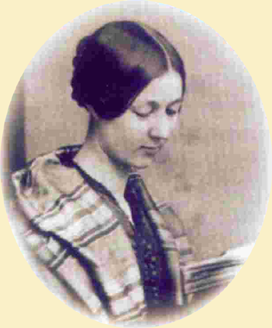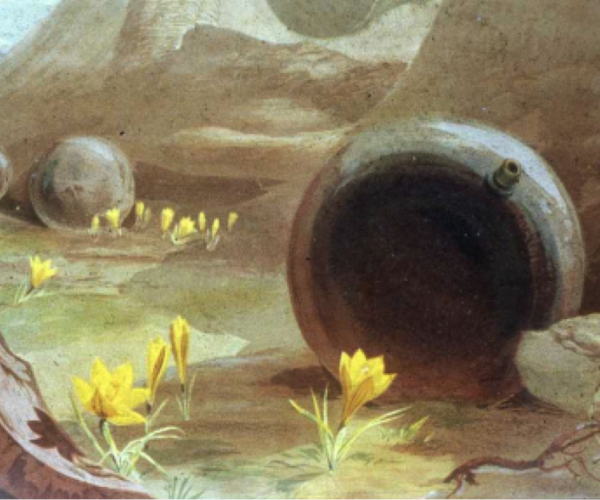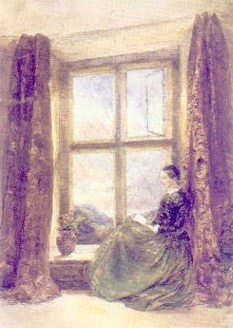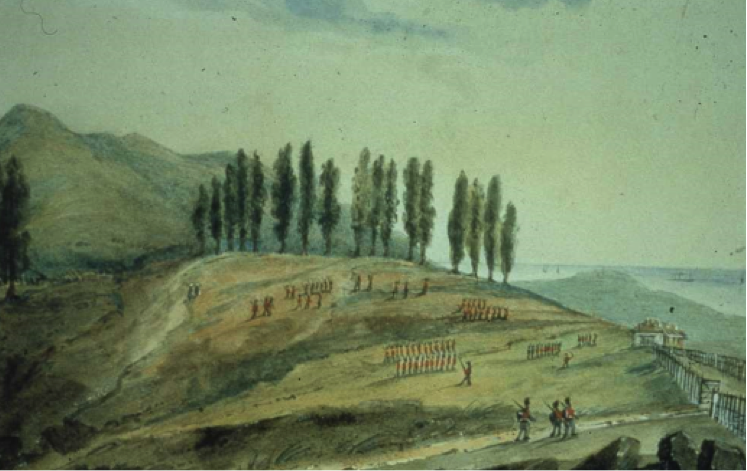Florence Nightingale
from letters and diaries

This lecture deals with aspects of Nightingale’s life and thought before, during and after the Crimean war.
With paintings, sketches and portraits from the Nightingale Museum, at St. Thomas’ Hospital, London by artists including:
Julia Smith (aunt)
Parthenope, Lady Verney (sister)
Hilary Bonham-Carter ( cousin)
Selina Bracebridge (friend)
“without whom Scutari and my life would not have been”
and
Jerry Barrett, war artist of the Crimea
The Crimean War occupies just two years of Florence Nightingale’s long life (1820-1910). Much of the rest of it is employed in passionate writing. “I could have been a married woman, a hospital sister or a literary woman”. In later life her topics are demanding and tough – sanitation reform; nursing reform: the health of the British army; hospital construction and even the nature of God. But she writes about herself too, vividly and often with biting wit. In youth Nightingale had to fight her mother and sister in order to get her own way. She says of her family “We are a great many strong characters, all pulling different ways. Oh, how much good it does us to have someone to laugh at us!”

Wild crocuses in the Crimea William Simpson 1855, Florence Nightingale Museum
As a young woman Nightingale visits Florence, her birthplace. There, and in Rome, she sets eyes on paintings which will affect her for the rest of her life. “I always believe in the old Italian pictures where the Unseen live on the first floor, and a ground floor where poor mortals live, but still have a connection with the establishment upstairs… I believe in a multitude of spirits inhabiting the same house with ourselves… we are like the blind man on the wayside and ought to sit and cry “Lord! that we may receive our sight!”
In letters she refers, with profound feeling, to works by Durer, Corregio and Michaelangelo. Later in her bedroom in South Street, London she will hang prints from the Sistine Ceiling. With typical bite, (and inconsistency, according to her mother) she will also claim that
“There is nothing I hate more than a museum!”
Nightingale had a great love of philosophical speculation. Her great friend Benjamin Jowett, classicist and master of Balliol College Oxford, would complain “I have heard you mention the nature of God over 10,000 times, but I still have no clear idea what you mean.” Jowett called her “Florence the First, Empress of Scavengers, Queen of Nurses, Reverend Mother Superior of the British Army, Governess of the Governor of India.” She replied “Maid of all dirty work rather, or, the Nuisances Removal Act, that’s me.”
This lecture has been presented to numerous branches of The Arts Society; at the National Army Museum, London and at the National Portrait Gallery, London. She was invited to present it in Perth, Australia, and to other branches of The Australian Arts Society, in May 2020; but her tour was cancelled due to Covid 19.


View from Nightingale’s bedroom, Barrack Hospital, Scutari,
Anne Ward Morton 1855, Florence Nightingale Museum
